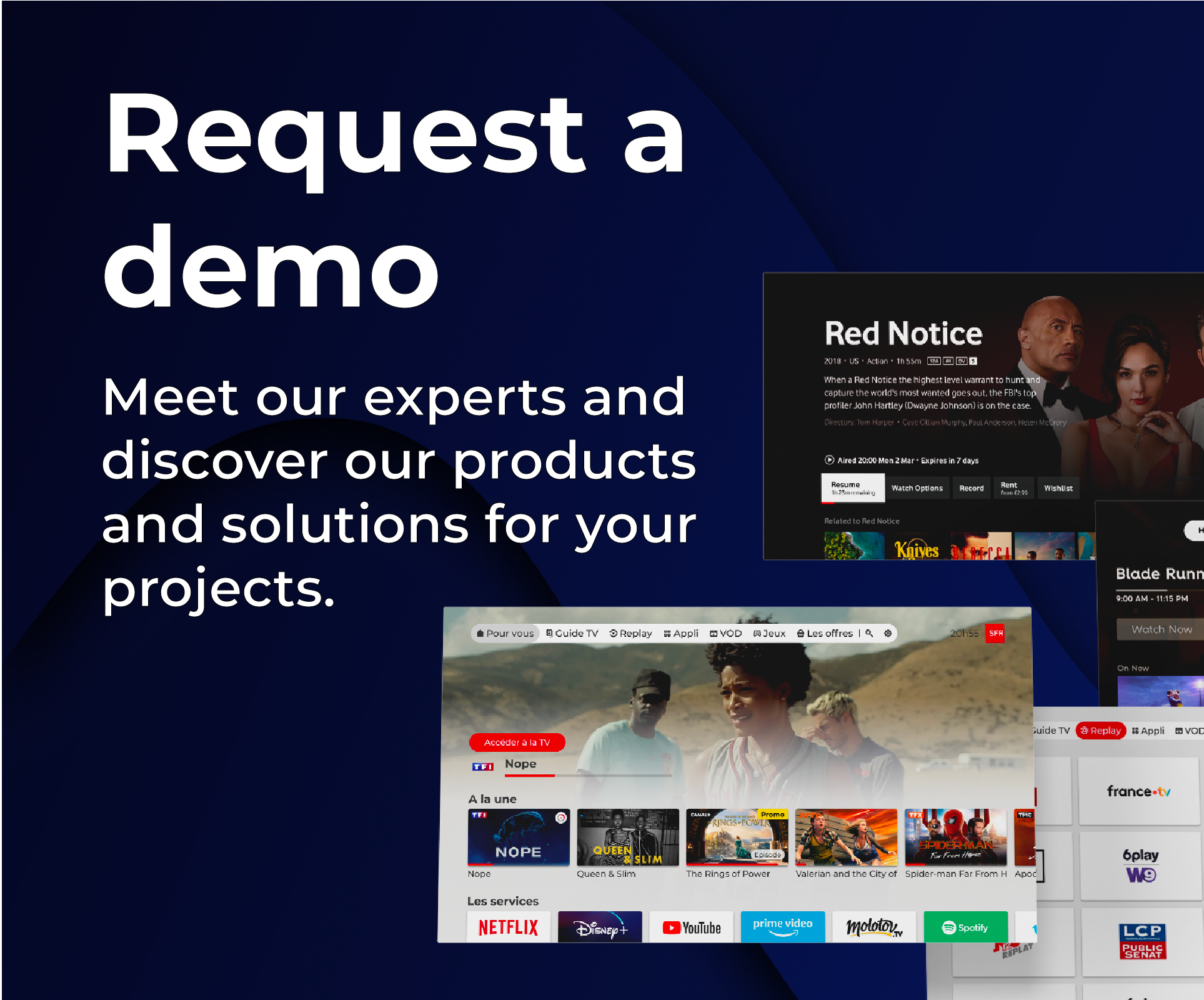As cloud gaming rapidly grows in popularity, an increasing number of telecom operators are seizing the opportunity to diversify their services and tap into this emerging market. However, choosing the right provider for your cloud gaming integration is crucial to ensuring success.
To help you navigate this decision, our cloud gaming experts - pioneers who have been in the industry for over 20 years! - have compiled the most important information you need to successfully launch your service.
All of this can be found in our ebook, "How to Easily Integrate a Cloud Gaming Solution: A Guide for Telcos".
By downloading it, you will discover, among other things, a checklist of ten essential questions you should ask when evaluating a potential cloud gaming partner.
Here is a summary, and each point is discussed in depth in the ebook:
- Will we be able to white label the platform?
- How can we personalize the platform for our customers?
- Do you offer an evolving game library? If so, which games are included?
- How does Cloud Gaming integration work with our existing backend?
- Will users be able to game on any device?
- Which hosting options do you offer?
- What is the maximum number of concurrent sessions you can facilitate?
- What level of insight into user behavior can you provide us with?
- Are you compliant with GDPR and the data protection act?
- Will you commit to the quality objectives that are important to us?
- Get started with your cloud gaming integration
1. Will we be able to white label the platform?
Brand identity is vital in creating a seamless experience for your customers. Ensure the provider allows you to white label the platform so users get a cohesive experience across your entire offering, and the service matches your brand precisely.
2. How can we personalize the platform for our customers?
Personalization is key to keeping users engaged. Ask the cloud gaming provider about how easy it is personalize the user experience. Does it, for example, offer dynamic content recommendations, customizable user interfaces, and personalized gaming suggestions?
3. Do you offer an evolving game library? If so, which games are included?
It’s all about the choice of games. A diverse and dynamic game library is essential if you want to cater to different gamer preferences. Ensure the provider offers a robust selection of games that is continuously updated so the user feels the service is always fresh. Inquire about their partnerships with leading gaming publishers to continuously enrich the catalogue.
4. How does Cloud Gaming integration work with our existing backend?
Integration with your existing backend system is critical for a seamless user experience and operator workflow. It’s also important if you want to offer gaming as an upsell or as an anti-churn service. Confirm that the provider's solution can be integrated without significant disruptions to your current infrastructure, including billing systems and customer management platforms.
5. Will users be able to game on any device?
The beauty of cloud gaming lies in its flexibility across devices. Ensure that the provider's solution is hardware-agnostic, allowing users to play on any device, from TVs and smartphones to tablets and PCs, regardless of the brand or model. But you’ll also want to make sure that users can get a great experience from anywhere, so you’ll want to ask the provider about how they ensure low latency within their service, even when users have low bandwidth connections. Check what they offer in terms of internet network management.
6. Which hosting options do you offer?
Different businesses have different hosting needs. Ask about the provider’s hosting options, whether it's hosted-as-a-service, on-premises, or on public clouds like AWS or Microsoft Azure. This flexibility will allow you to choose the option that best suits your technical capabilities and budget.
7. What is the maximum number of concurrent sessions you can facilitate?
As your user base grows, the provider's infrastructure must scale accordingly. Understanding the maximum number of concurrent gaming sessions the provider can support will help you plan for future growth without compromising the quality of service.
8. What level of insight into user behavior can you provide us with?
Data-driven insights are crucial for refining your offering and enhancing user engagement. Ask the provider about the level of detail they can offer in user analytics, such as play logs, purchase histories, user journeys, and heatmaps, to help you make informed decisions.
9. Are you compliant with GDPR and the data protection act?
Data security and privacy are non-negotiable. Ensure that the provider complies with all relevant regulations, including GDPR in Europe and the Data Protection Act in the UK. This will protect your customers’ data and safeguard your business from potential legal issues.
10. Will you commit to the quality objectives that are important to us?
Finally, the provider’s commitment to quality is crucial for long-term success. Make sure you are aligned on key performance indicators (KPIs) and quality objectives that matter most to your business, whether it’s uptime, customer support responsiveness, or data management.
Get started with your cloud gaming integration
Choosing the right cloud gaming provider involves more than just evaluating their technical capabilities. By asking these ten essential questions, you can ensure that your chosen partner aligns with your business goals, will enable you to offer a seamless and personalized user experience, and will provide a robust platform that can scale as your user base grows. It will also ensure the integration process is as painless as possible.
If you’ve found our cloud gaming integration checklist useful, you can find out more about this growing trend by downloading our full guide to cloud gaming integration for telcos. It includes a detailed case study on how leading French telco SFR has led the market with support from Wiztivi. Why not also explore the benefits of Wiztivi’s powerful Streamava cloud gaming platform?




